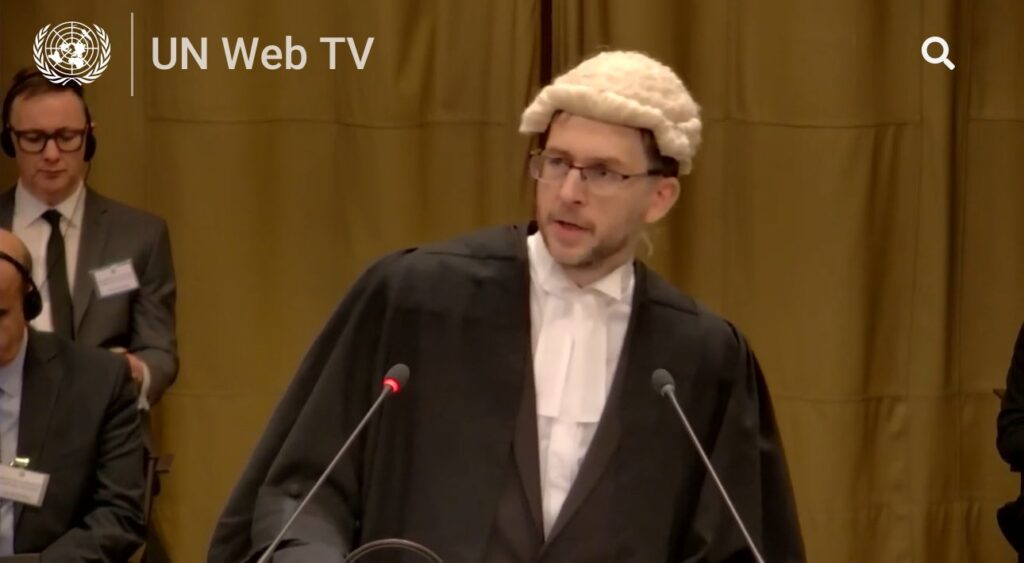
Guyana argues that Israel engaged in ‘military conquest, annexation’ in Palestine territory
Dozens of countries are engaging the International Court of Justice (ICJ) on the legality of Israel’s occupation of Palestinian territory and Guyana, on Wednesday, argued that the occupation amounts to military conquest and annexation.
Israel has occupied Palestinian territory for decades. Occupied territories include the West Bank, East Jerusalem and the Gaza Strip. Both Israel and Palestine held overlapping responsibilities for the areas.
Guyana, represented by attorney Edward Craven, argued that Israel’s continued, forceful occupation of Palestinian territory is an “offence against the bedrock of international law” and a “matter of global concern.”
And he pointed out that Guyana joined these proceedings even though it is distant from the Middle East because the occupation is particularly concerning for all states opposed to any territorial acquisition by force.
On the substantive legal question of Israel’s occupation, Guyana made strong statements.

Craven posited that the Palestinian people have grappled with enormous hardship and suffering because of what many have termed Israel’s “occupation” of Palestinian territory.
He, however, argued that occupation refers to a temporary state of being.
Israel’s actions, Craven contended, indicate no state of “temporariness” because of the forceful nature of Israel’s actions.
He also pointed out that Israel has been applying its laws to Palestinian territory and public statements from political figures, including Israel’s current Prime Minister Benjamin Netanyahu, indicate that Israel intends to make that occupation permanent.
But Craven posited that international law does not permit this.
“Permanent occupation is not occupation at all; it is military conquest and annexation is strictly prohibited by international law,” Craven said.
He, therefore, posited that Israel’s occupation should be deemed illegal.
Though Guyana made no direct reference to its border controversy, it is notable that Guyana made similar arguments last year when Venezuela opted for a referendum over the Essequibo region. That region is two-thirds of Guyana’s total area.
Guyana highlighted that Venezuela’s referendum could pave the way for the Nicolas Maduro government to take the Essequibo region by military force, a move that would be hard to reverse.
The World Court subsequently ruled that Venezuela must not take any action over Guyana’s Essequibo region. Venezuela did proceed with its referendum and tensions between the two countries were heightened when
President Maduro issued a redrawn map of Venezuela that includes Guyana’s Essequibo region. He also ordered companies to leave Guyana and outlined plans for the development of oil and gas and mining activities in the Essequibo region.
Following regional and international intervention, Guyana and Venezuela engaged each other in December and they agreed to refrain from escalating the decades-old border controversy. Guyana is also pursuing its case before the ICJ where it is seeking a final, binding resolution that the Essequibo region is its own.




